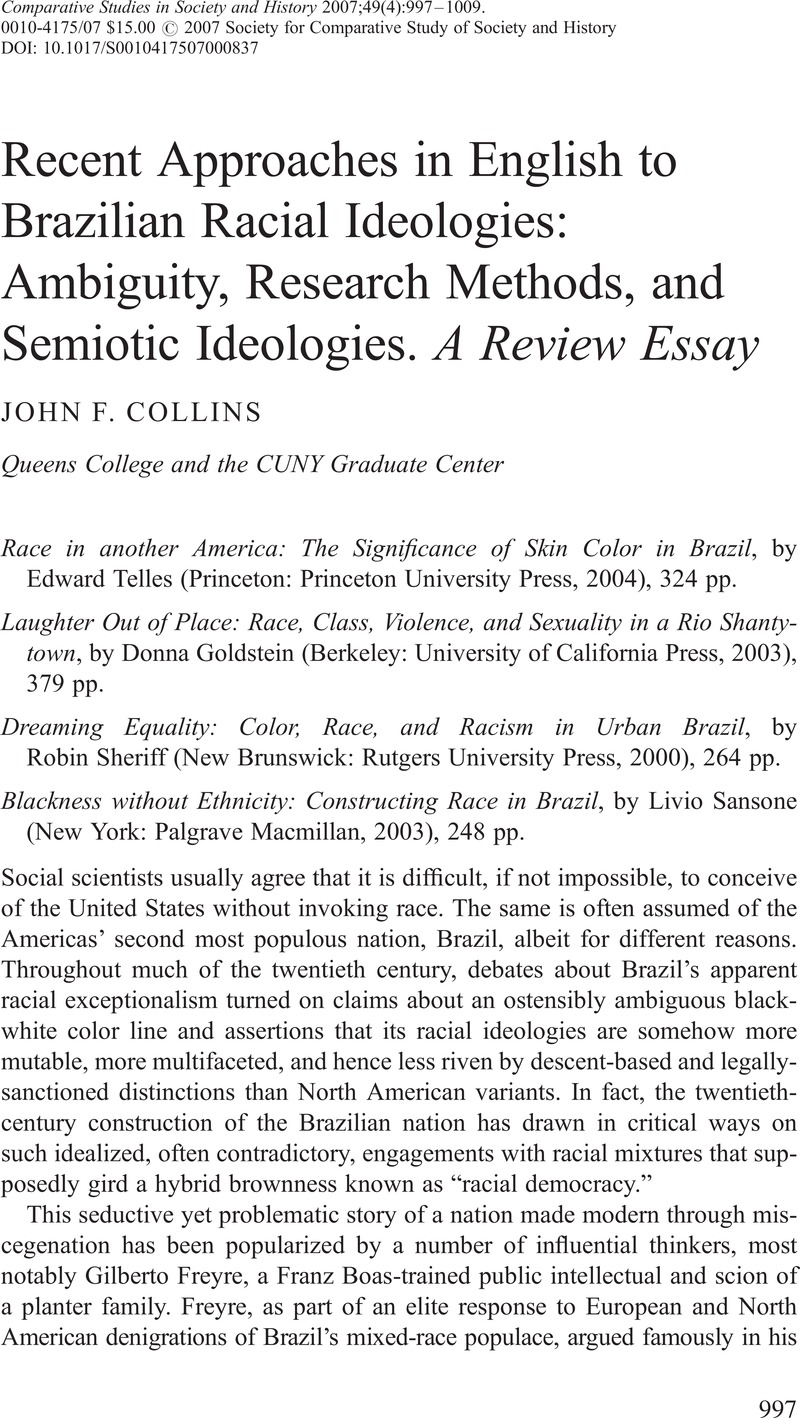Crossref Citations
This article has been cited by the following publications. This list is generated based on data provided by Crossref.
COLLINS, JOHN
2008.
“BUT WHAT IF I SHOULD NEED TO DEFECATE IN YOUR NEIGHBORHOOD, MADAME?”: Empire, Redemption, and the “Tradition of the Oppressed” in a Brazilian World Heritage Site.
Cultural Anthropology,
Vol. 23,
Issue. 2,
p.
279.
Collins, John F.
2014.
Policing's Productive Folds: Secretism and Authenticity in Brazilian Cultural Heritage.
The Journal of Latin American and Caribbean Anthropology,
Vol. 19,
Issue. 3,
p.
473.
2015.
Revolt of the Saints.
p.
411.
Collins, John F
2018.
CULTURA, CONTEÚDO E CERCAMENTO DO SER HUMANO: herança intangível da UNESCO no novo milênio.
Caderno CRH,
Vol. 31,
Issue. 82,
p.
25.
Dengah, H. J. François
Gilmore, Jason
Brasileiro, Marcus
Cohen, Anna S.
Thomas, Elizabeth Bingham
Blackburn, Jenni Budge
Law, McKayle
Swainston, Jae
and
Thomas, Richard
2019.
Cultural Models ofRaça: The Calculus of Brazilian Racial Identity Revisited.
Journal of Anthropological Research,
Vol. 75,
Issue. 2,
p.
157.



